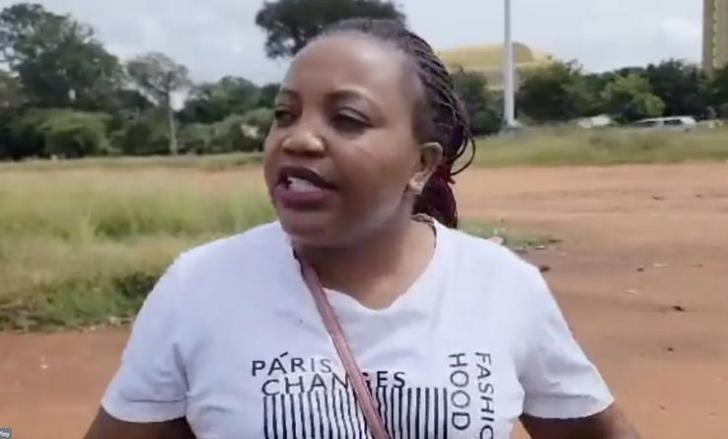News / National
Police deny claims woman at protest was undercover cop
01 Apr 2025 at 15:40hrs | Views

The Zimbabwe Republic Police (ZRP) has denied claims that a woman filmed during the March 31 protests in Harare was an undercover officer gathering intelligence on demonstrators and journalists.
In a statement, police dismissed the allegations, saying the woman - who identified herself to journalists as "Julie" - was not a member of the force.
"The ZRP dismisses social media posts claiming that this lady is a member of ZRP Glen Norah. Police records are clear—she is not a member of ZRP. The law will take its course if it is proved that she is impersonating the police in her activities," the statement read.
The clarification comes amid speculation from online activists, who alleged that the woman was working with security agencies and had been identified as a police officer residing in Glen Norah. Some posts also claimed she drove a Mercedes-Benz and was filming protesters and journalists on behalf of law enforcement.
Despite the police's denial, suspicions of plainclothes officers operating at anti-government demonstrations persist. Notably, after interviewing the woman, journalists were briefly detained by the police before being released.
The March 31 protests were called for by war veteran and former intelligence officer Blessed Geza, who has become a vocal critic of President Emmerson Mnangagwa. Geza urged Zimbabweans to take to the streets against what he termed economic mismanagement and efforts to extend Mnangagwa's rule beyond constitutional limits.
Security forces were heavily deployed across major cities ahead of the demonstrations, with police and soldiers stationed at strategic locations to prevent large gatherings. Businesses, schools, and public transport operations were affected, as many residents chose to remain indoors.
In Harare, police used tear gas to disperse small groups of protesters, and reports of arrests surfaced throughout the day. The temporary detention of journalists covering the demonstrations has further raised concerns over press freedom and government efforts to suppress dissent.
Authorities have maintained that their actions were necessary to maintain law and order, but critics argue that the crackdown reflects deepening political tensions in the country.
In a statement, police dismissed the allegations, saying the woman - who identified herself to journalists as "Julie" - was not a member of the force.
"The ZRP dismisses social media posts claiming that this lady is a member of ZRP Glen Norah. Police records are clear—she is not a member of ZRP. The law will take its course if it is proved that she is impersonating the police in her activities," the statement read.
The clarification comes amid speculation from online activists, who alleged that the woman was working with security agencies and had been identified as a police officer residing in Glen Norah. Some posts also claimed she drove a Mercedes-Benz and was filming protesters and journalists on behalf of law enforcement.
Despite the police's denial, suspicions of plainclothes officers operating at anti-government demonstrations persist. Notably, after interviewing the woman, journalists were briefly detained by the police before being released.
The March 31 protests were called for by war veteran and former intelligence officer Blessed Geza, who has become a vocal critic of President Emmerson Mnangagwa. Geza urged Zimbabweans to take to the streets against what he termed economic mismanagement and efforts to extend Mnangagwa's rule beyond constitutional limits.
Security forces were heavily deployed across major cities ahead of the demonstrations, with police and soldiers stationed at strategic locations to prevent large gatherings. Businesses, schools, and public transport operations were affected, as many residents chose to remain indoors.
In Harare, police used tear gas to disperse small groups of protesters, and reports of arrests surfaced throughout the day. The temporary detention of journalists covering the demonstrations has further raised concerns over press freedom and government efforts to suppress dissent.
Authorities have maintained that their actions were necessary to maintain law and order, but critics argue that the crackdown reflects deepening political tensions in the country.
Source - cite








































